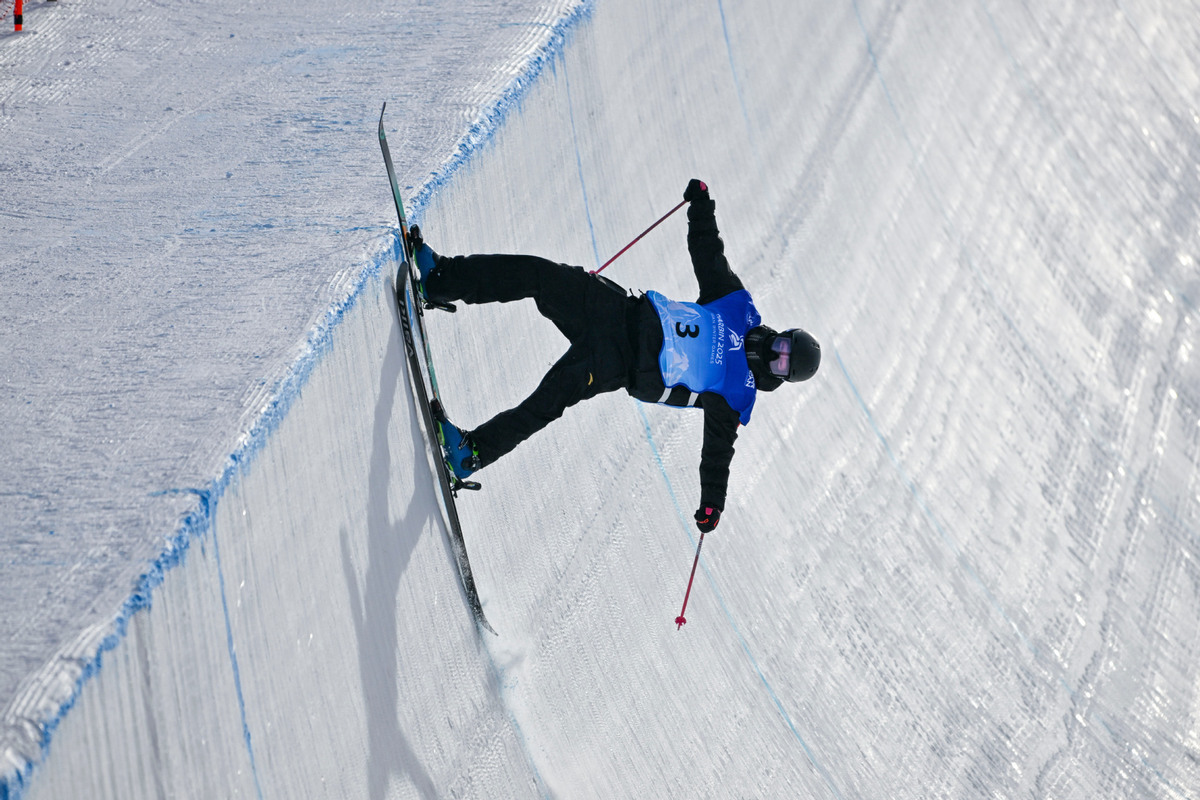
Major international sports events have always been an important economic lever for the host country, and hopefully the 9th Asian Winter Games in Harbin this year will play the same role. With the participation of more than 1,200 athletes from Asian countries, the event will not only showcase China's extraordinary organizational capability but also help boost the economy of the city and surrounding region.
The positive effect of an event of such a magnitude becomes evident when we analyze the economic impact of similar events. A recent report by the Centre de Droit et d'Economie du Sport estimated that the Paris 2024 Summer Games had an economic impact of more than €10 billion ($10.41 billion), with the amount being distributed among organization, infrastructure and tourism. Such events not only stimulate the local economy in the short term, but also leave a legacy of improved infrastructure and tourism growth.
For example, after successfully and profitably hosting the 2006 Winter Olympic and Paralympic Games in Turin, Italy applied again to host the Winter Olympics and was awarded, for the third time in history, the Winter Olympics that will be held in Milan and Cortina in 2026.
READ MORE: Xi announces opening of Asian winter games
The Asian Winter Games in Harbin is expected to have a similar impact, especially because ice and snow tourism is expected to grow at a high rate in keeping with the trend of more than 40 percent growth in foreign tourists in the 2024-25 winter season. The Harbin International Ice and Snow Festival, which comprises the world's largest ice and snow-themed park, attracted more than 1 million visitors in just 20 days since its opening, showing that the city is already benefiting from an increased influx of winter sports tourists.
A key aspect of sports events of this magnitude is their role in helping modernize infrastructure. As the provincial capital of Heilongjiang, Harbin has invested heavily to improve its transport, accommodation and sports facilities. The creation or renovation of such infrastructure facilities will not only make the city more attractive to tourists, but also leave a lasting legacy for residents, as was the case for the Barcelona where the number of international tourists quadrupled after the city hosted the 1992 Summer Olympics.
The number of ice and snow sports facilities in China increased from 700 in 2015 to almost 3,000 in 2024. This growth reflects the Chinese government's commitment to promote winter sports, with the aim of making the ice and snow economy a key driver of economic development. This trend is expected to yield about 1.2 trillion yuan ($165.52 billion) by 2027 and 1.5 trillion yuan by 2030.
Organizing events of this scale also has a multiplier effect on local employment. Increased demand for goods and services pushes companies to upgrade their production systems and increase their workforce, leading to an increase in people's incomes which in turn boosts people's spending capacity, generating widespread benefits for the local economy.
But hosting an event of this scale also has implications far beyond the duration of the event. One example is the increase in tourism in Harbin and the surrounding regions. For instance, Jilin province recorded a 120 percent increase in tourist visits last year compared with the previous year, with a 140 percent increase in tourism revenue to 241.9 billion yuan.
This shows the growth of winter tourism has a ripple effect across the region. The phenomenon is also evident at the national level: the number of ice and snow tourists in China increased by 38 percent last season, with revenues growing by 50 percent. According to projections, more than 500 million people are expected to take part in winter tourism this year, an increase of 20 percent over 2024.
The internationalization of the city is another key impact of major sports events. Harbin, known as the "Ice City of China" and having already hosted the Asian Winter Games in the past, will see its brand grow globally. This will attract not only tourists but also investors who will help further develop the tourism industry, winter sports and other sectors. With more than 900 companies operating in the ice and snow equipment sector — up from about 300 in 2015 — Harbin has the potential to become a strategic industrial hub for this sector.
In addition to the economic benefits, major sports events also have a huge socio-cultural impact. Residents of host cities develop a great sense of belonging and pride in their community, while taking initiatives and organizing activities related to the event, which strengthens the social fabric.
From a political point of view, these events foster international dialogue and cooperation between governments, sports organizations and private companies. The opportunity to establish new economic and commercial partnerships makes the Asian Winter Games an important platform for sports diplomacy and territorial marketing.
ALSO READ: A boost to ice and snow economy
Apart from the immediate economic impacts related to tourism and investment, the effects, starting from the following two years, include the improvement of infrastructure (not only sports), the growth of the winter sports sector and the internationalization of the city.
However, in order to maximize these benefits, the authorities have to strategically plan their moves. Investments in sustainable infrastructure, tourism promotion and lifestyle improvement could be the key to ensuring lasting growth.
Harbin could consolidate its position as one of the world's leading winter tourism destinations. If used properly, this edition of the Asian Winter Games could be a turning point for the city and the rest of the northeast region, transforming it into a global center for winter sports and ice and snow-related tourism.
The author is the International President of Federation Internationale Cinema Television Sportifs and a member of IOC Commission for "Culture and Olympic Heritage".
The views don't necessarily reflect those of China Daily.


